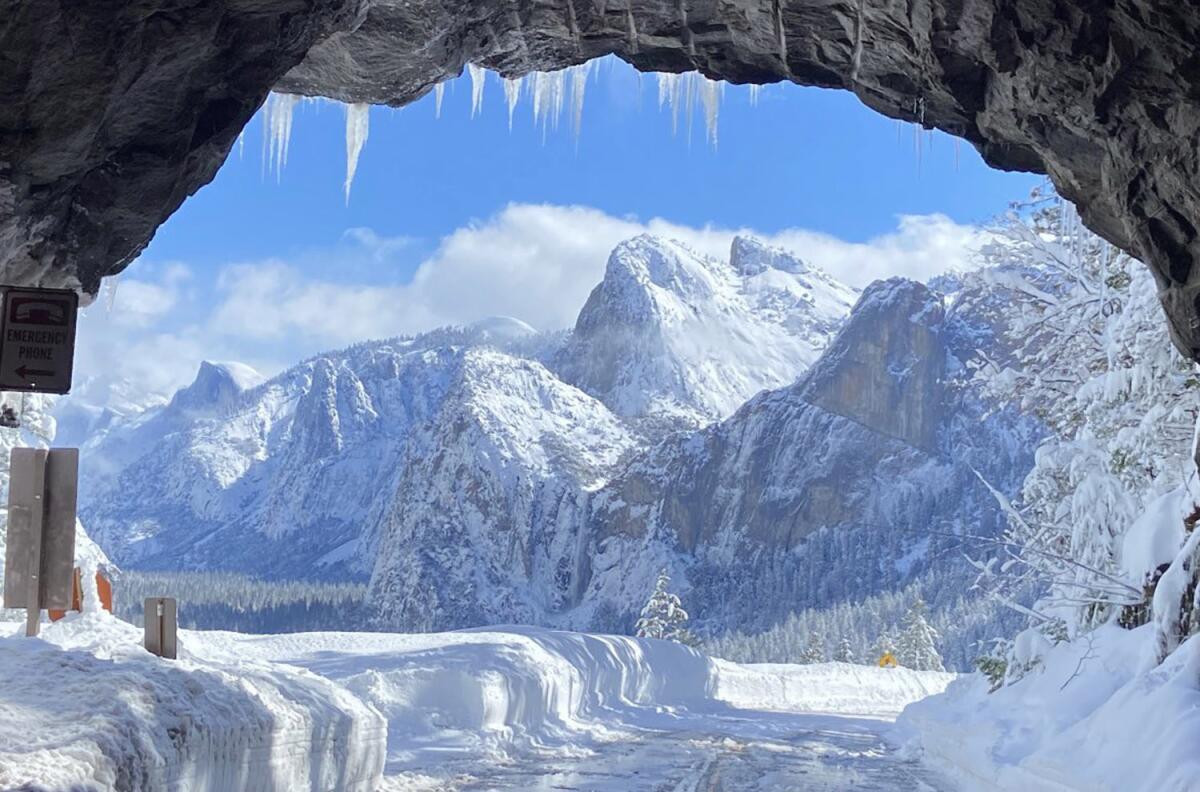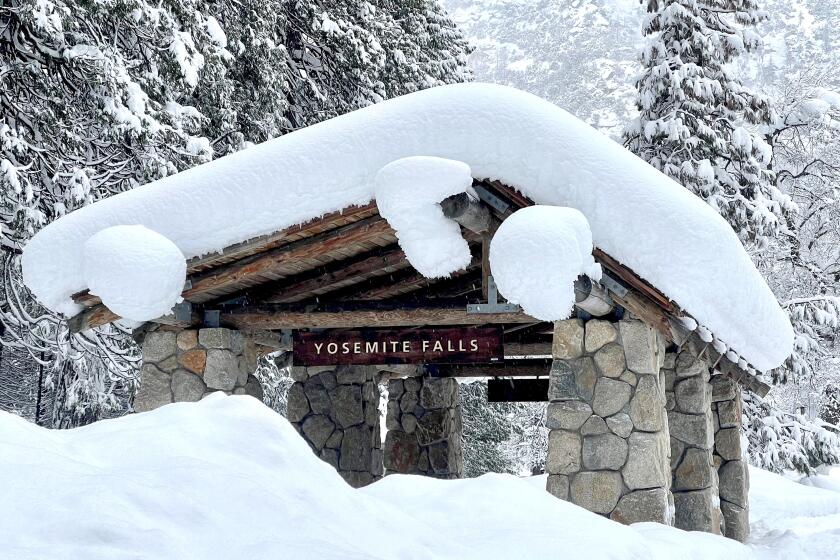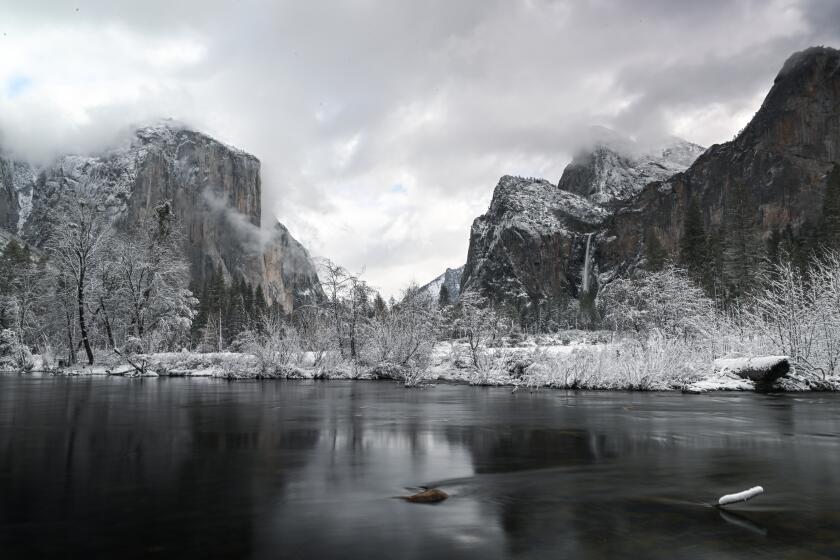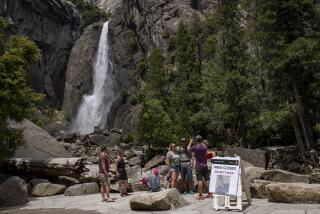Yosemite plans for limited reopening Saturday after weather closed the park for weeks

- Share via
Yosemite National Park plans to “restore minimal public access” Saturday, after shuttering for almost a month because of multiple strong winter storms and atmospheric river systems that dumped record-breaking snow, caused several rock falls and damaged many park facilities.
Yosemite Valley — one of the most popular and accessible parts of the world-famous park — will reopen to visitors Saturday during daylight hours, but park officials warned that many roads in the park remain closed and trails are still snow-covered, according to a statement from park officials. The Hetch Hetchy Valley in the northwestern part of the national park will also reopen from 8 a.m. to 5 p.m., park officials said.
Visitors will be able to access Yosemite Valley only from the west through Highway 140 and El Portal Road, with a short detour in El Portal, the statement said. The valley will have limited services available.
‘This is the most any of us have ever seen,’ one ranger at Yosemite said. There is no date for reopening as officials respond to snowfall of up to 15 feet deep in some areas.
Hetch Hetchy will also be accessible only from the west, through Highway 120 and Evergreen Road.
Park officials said all other roads and areas of the park, including Big Oak Flat and Wawona Roads, will remain closed, noting that in the last few weeks the park has documented 22 rock slides, many debris flows and other slope failures along park roads, though much of that has been mitigated.
The park closed Feb. 25 and has since broken at least two snowfall records, one for snow accumulation in the Yosemite Valley, and another in the park’s high country, where Tuolumne Meadows broke a 1983 record for the amount of snow on the ground, with 146 inches Wednesday, according to park officials.
As experienced in much of the state, Yosemite this last week received significant rainfall, which has made for particularly beautiful views of waterfalls, but even more problems across the park, including runoff and rockslides, said park spokesperson Scott Gediman.
“There’s just waterfalls just flowing everywhere,” Gediman said. While there has been some snow melt, he said the snowpack remains pretty strong.
Yosemite Valley has received more than 21 inches of rain and Tuolumne Meadows has received more than 15 feet of new snow since Feb. 21, when the storms started, park officials said.
Starting Monday, park officials are hoping Yosemite Valley will return to its typical 24-hour operation, including limited overnight lodging but no camping because campgrounds remain buried by snow. That plan, though, could be affected with more wet weather forecast for early next week, Gediman said.
Another atmospheric river system is expected to again dump heavy rains and snow across the park, with the heaviest precipitation forecast Tuesday, according to National Weather Service meteorologist Jim Bagnall in Hanford. He said this system is expected to be slightly colder than the last one, which will drop snow levels to the Yosemite Valley.
From Monday through Wednesday, the Yosemite Valley is forecast to get at least an additional foot of snow, while higher elevations could see much more, according to the National Weather Service. The Tioga Pass region, to the park’s east, could get more than 3 feet of snow.
The system is also forecast to bring up to 6 inches of rain to the Yosemite Valley and 3 inches of rain near the Tioga Pass.
All roads inside the park have been restricted to administrative use only.
“We’ll just have to see,” Gediman said. “For us it’s going to be continuing to keep roads clear, mitigate the water as best we can.”
While many paved pedestrian paths in the Yosemite Valley have been plowed, all hiking trails are covered in snow, and officials warned visitors to not hike on such trails without proper equipment.
“For many weeks now, we work every day to try to mitigate [storm issues], and now we’re certainly excited to welcome back visitors tomorrow,” Gediman said. “But we want to be clear: Folks need to check road conditions, be extra prepared.”
He said given extreme weather and more on the radar, people should come with a full tank of gas, extra food, layers of clothing and ideally spikes for shoes and chains for vehicles. Park officials also recommended calling (209) 372-0200 to check road conditions.
More to Read
Sign up for Essential California
The most important California stories and recommendations in your inbox every morning.
You may occasionally receive promotional content from the Los Angeles Times.













